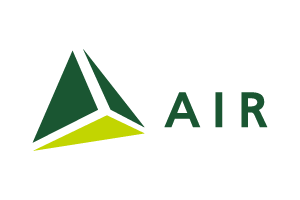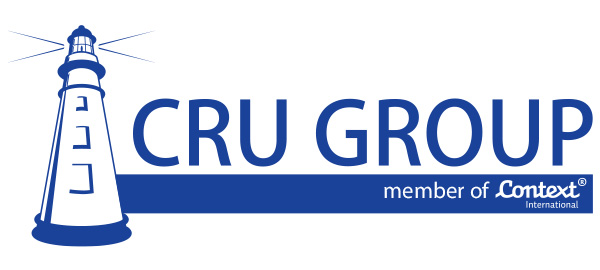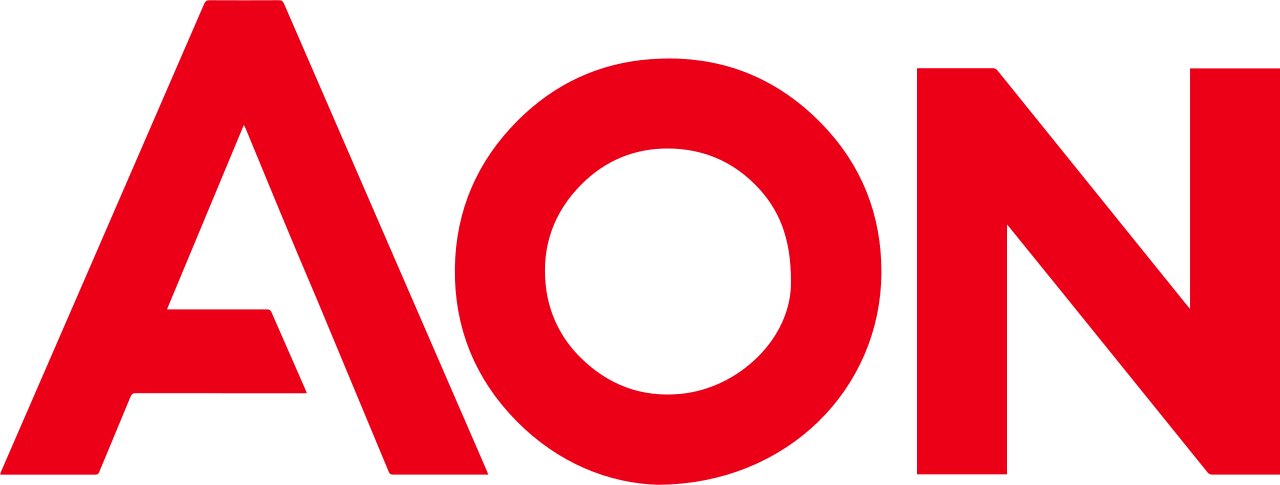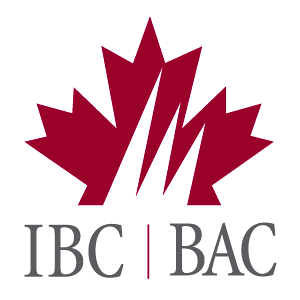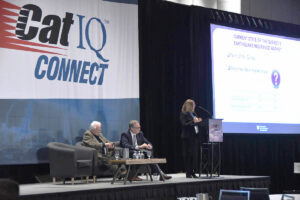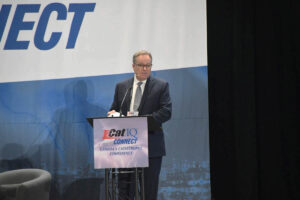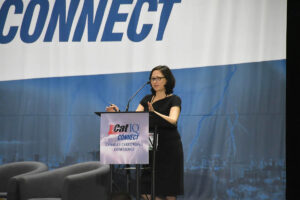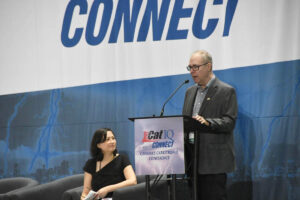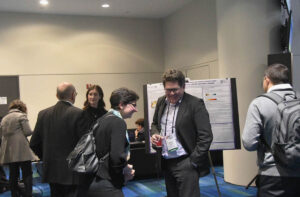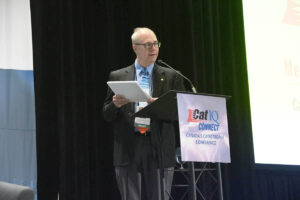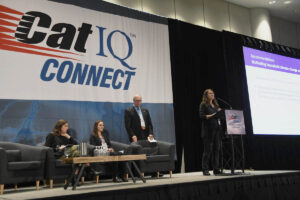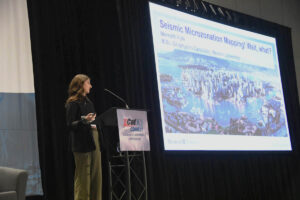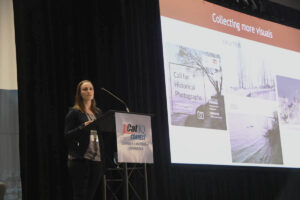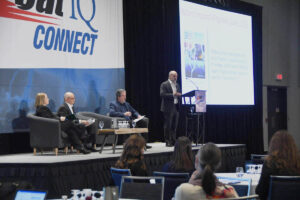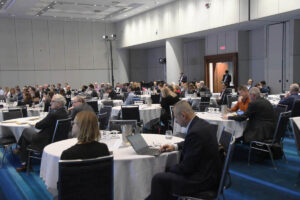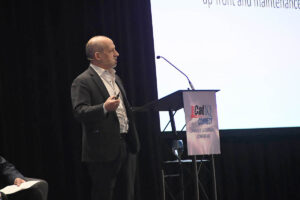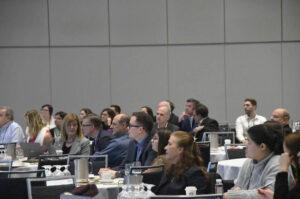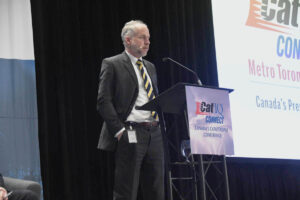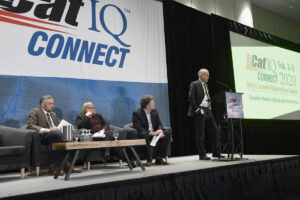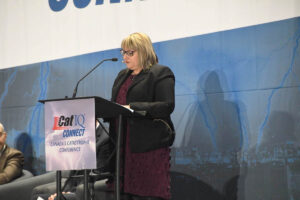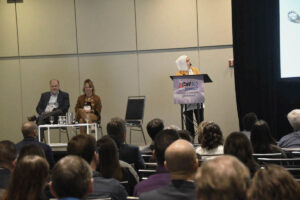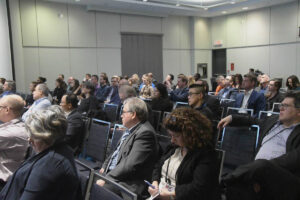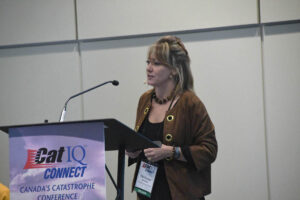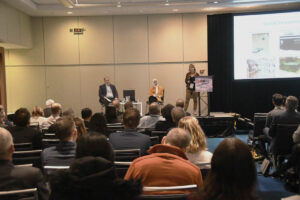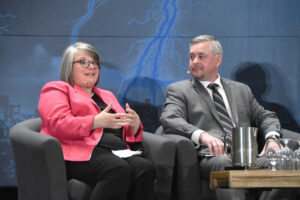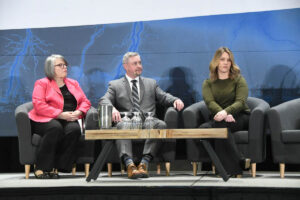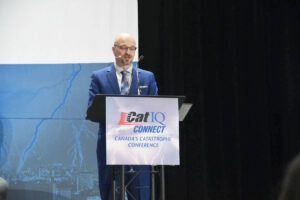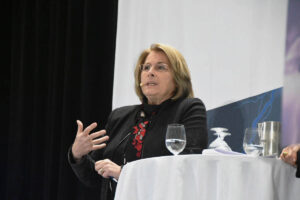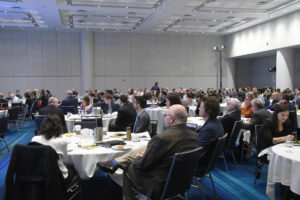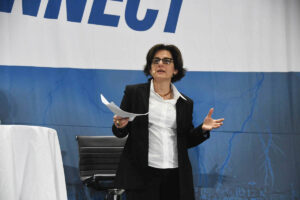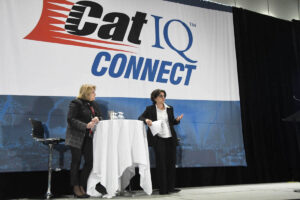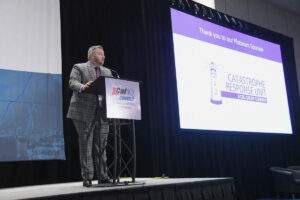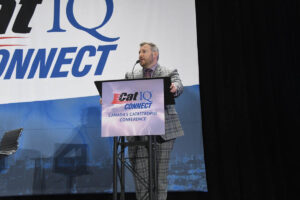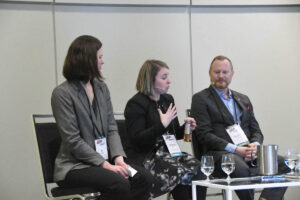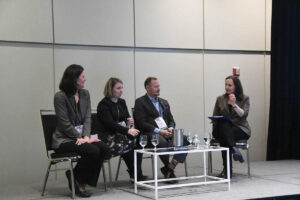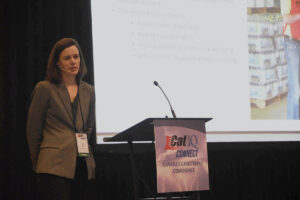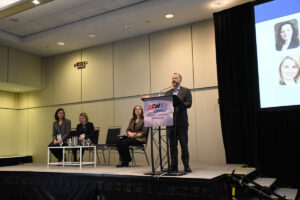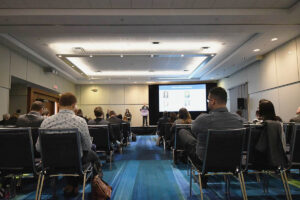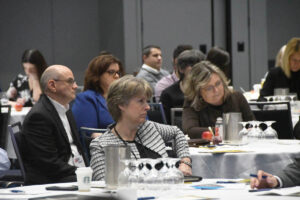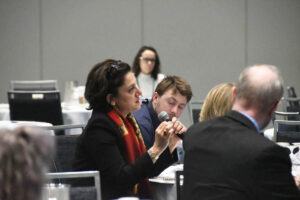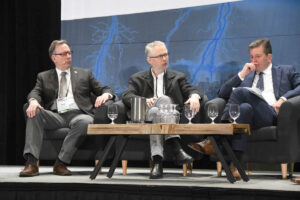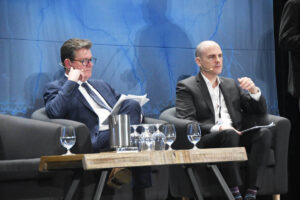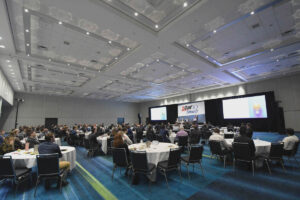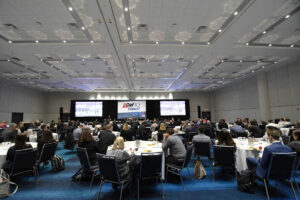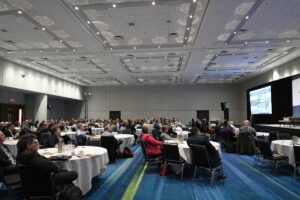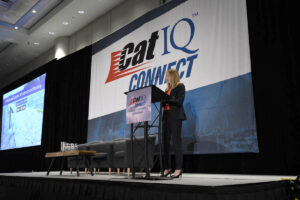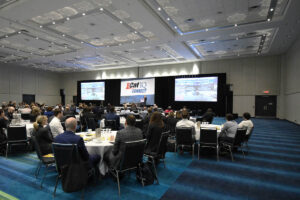Day 1 - February 3
12:00 pm
-
1:00 pm
Registration Opens
1:00 pm
-
2:30 pm
Workshop hosted by the Canadian Red Cross - Part 1
The Canadian Red Cross is pleased to be hosting the CatIQ Conference Workshop on February 3, 2020. In providing side-by-side case management assistance to disaster impacted individuals and small businesses, we have gained a thorough understanding of the end line costs to Canadians following a disaster event. For those with severe damage/destruction or in complex cases our relationship typically lasts approximately 2-3 years post-event and long after any insurance claim closure or DFA assistance being provided. We are excited to share insights on the catastrophic recovery ecosystem based on our data collection of recent Canadian disaster events. Participants will be provided with an overview of insights in the insurance, DFA, and construction industries as well as case studies and pain points.
Participants will be led in a ‘choose your own adventure’ style exercise to discover the sometimes impossible choices Canadians are faced with due to the catastrophic recovery ecosystem and asked for suggestions to remedy these issues. Based on this data, the Canadian Red Cross will be providing a report on the creation of a national flood insurance program in its role of advocating for individuals and small businesses affected by disasters. The feedback and recommendations of this group will be cited in this report.

Facilitator
Amy Avis
General Counsel and Chief of Recovery Services
Canadian Red Cross

Facilitator
Emily Pietropaolo
Vice President, Recovery
Canadian Red Cross

Facilitator
Shannon Veilleux
Director of Incidents, Insurance and Risk
Canadian Red Cross
Session Sponsor
3:00 pm
-
5:00 pm
Workshop hosted by the Canadian Red Cross - Part 2
Day 2 - February 4, 2021
8:00 am
Registration Opens
8:45 am
-
9:00 am
Welcome & Acknowledgements and Intro Address

Laura Twidle
President and CEO
Catastrophe Indices and Quantification

Jim Abraham
Past President and Fellow
Canadian Meteorological and Oceanographic Society

Marjorie Brans
Global Catalyst
The League of Intrapreneurs
9:00 am
-
9:15 am
2019 CATs in Review
The conference will begin with an overview of catastrophes that occurred in 2019. This comprehensive review will include a chronology of events, geographic footprints of impacted areas, related media and insured loss estimates provided by CatIQ.
9:15 am
-
10:15 am
Leadership and Financial Solutions to Climate Change
Corporate leadership is clearly seen as a critical element in responding to the significant economic challenges presented by climate change. Such leadership can serve both as a catalyst for, and in conjunction with, emerging government policies. Barbara Zvan from the Expert Panel on Sustainable Finance will speak to the Panel’s recent thought-provoking recommendations on a national strategy, and Roger Beauchemin, President & CEO of Addenda Capital, will speak to how a progressive insurer and investor is working to leverage its position to address both the risk and opportunity sides of the climate change equation.

Speaker
Roger Beauchemin
President & CEO
Addenda Capital Inc.

Speaker
Barbara Zvan
Chief Risk and Strategy Officer
Ontario Teachers' Pension Plan
Sponsored by
Morning Concurrent Session A
10:45 am
-
11:45 am
Mental Health and Disasters
We tend to focus on the financial cost of disasters; but so often, the psychological and social costs are forgotten. This session will host speakers from the Canadian Red Cross, Stan Darling Insurance, and Desjardins. The panelists will speak to their experiences during disasters, and will include their best practices for claims teams, homeowners and first responders to overcome the emotional stress of working in and living through these events.

Speaker
Stephen Darling
President
Stan Darling Insurance Inc.

Speaker
Chantal Gagné
Director
Desjardins Insurance
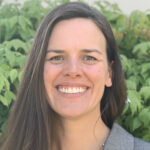
Speaker
Alison Paul
Senior Advisor, Mental Health and Psychosocial Support
Canadian Red Cross
Morning Concurrent Session B
10:45 am
-
11:45 am
Standards: A New Tool for Flood Resilient Design
As communities continue to be overwhelmed by extreme storms, there is an increasing need to find new solutions to compliment traditional ways for managing stormwater and mitigating flooding. This session will discuss the role of new consensus based standards and other similar new methodologies or tools that can add to the existing toolkit of governments and stormwater practitioners to achieve flood resilient design for communities.

Speaker
David Foster
Senior Advisor, Policy & Communications
Canadian Home Builders' Association

Speaker
John Sankey
Director, Investigative Services, Ontario Claims
Intact Insurance

Speaker
Bert van Duin
Drainage Technical Lead, Water Resources
City of Calgary
11:45 am
-
1:15 pm
Keynote Address
Lunch and Fireside Chat

Keynote
Maryam Golnaraghi
Director, Climate Change & Emerging Environmental Topics
Geneva Association

Keynote
Kathy Bardswick
President & CEO
Canadian Institute for Climate Choices
Sponsored by
Afternoon Concurrent Session A
1:30 pm
-
2:30 pm
Fort McMurray Rebuild
As we near the fourth anniversary of Canada’s costliest disaster, the Fort McMurray wildfire, we will hear experts speak to the rebuild.

Speaker
Kelly Hansen
Director of Recovery Operations
Canadian Red Cross

Speaker
Andrew Ross
SVP, Operations Canada
J.S. Held ULC

Speaker
Laura Stewart
Provincial FireSmart Liaison
Government of Alberta
Afternoon Concurrent Session B
1:30 pm
-
2:30 pm
Risk Assessment: Current Practice and a Critical Evaluation
This session will review the current practice of risk assessment within the field of emergency management. An expert panel moderated by Professor Aaida Mamuji from the York University Disaster and Emergency Management program will give short presentations:
- Public Safety Canada will discuss the general methodology being used by Canada’s new National Risk Profile.
- Credit Valley Conservation will discuss their “Risk and Return on Investment Tool” for identifying flood risk under current climate and climate change scenarios.
- BCPRiskManagement will discuss methodologies of risk assessment, particularly risk matrix approaches such as HIRA.
The session will conclude with a critical analysis on risk assessment with a focus on the use of flawed risk equations, the importance of rare events, and the need for ethical considerations.

Speaker
Mark Baker
Business Continuity Consultant
BCPRiskManagement

Speaker
Christine Zimmer
Senior Manager of Water & Climate Change Science
Credit Valley Conservation
2:35 pm
-
3:35 pm
Move or Stay Put? Governmental Views on Flooding
The response to flooding events in Canada is frequent and expensive. It is becoming more important for the government to remove the risk or apply resilient methods to create sustainable communities. This panel will explore the perspectives from different levels of government around decisions to stay put or move out. Discussions will be focused on strategic retreats and buyouts, and infrastructure investment.

Speaker
Stéphanie Durand
Director General, Emergency Management Policy and Outreach
Public Safety Canada

Speaker
Steve Ehrlich
Senior Advisor, Risk
Canada Mortgage and Housing Corporation

Speaker
Eric Loubier
Director General, Canadian Centre for Mapping
Natural Resources Canada
4:05 pm
-
5:05 pm
Resilience: The Whys and The Hows
As losses due to severe weather become more acute, for several reasons including a warming climate, it will be increasingly necessary for all of society – including the (re)insurance industry – to work together to, among other things, ensure that resilience measures are baked in to where and how we build/rebuild going forward. In this session, we will look at why resilience makes sense from a benefit/cost perspective, looking at the results of analysis which finds that the benefits of adding resilience measures to how we build/retrofit far outweigh the initial costs. The session will then look at what the (re)insurance industry would have to do in order to ensure that resilience is incorporated into insurers claims’ responses by considering the issue of policy wordings and reinsurance considerations and the challenges that surround making this happen.

Speaker
Monica Ningen
President and CEO, Canada and English Caribbean
Swiss Re

Speaker
Keith Porter
Chief Engineer
Institute for Catastrophic Loss Reduction

Speaker
Kevin Smart
AVP, Personal Insurance, Underwriting Policy
Aviva Canada
5:05 pm
-
5:30 pm
Student Delegate Presentations

Delegate
Meredith DeCock-Caspell
Master of Sustainability Candidate
Brock University

Delegate
Meredith Fyfe
MSc Candidate, Geophysics
Western University

Delegate
Magda Goemans
PhD, Geography and Environmental Studies
Carleton University
Sponsored by
Day 3 - February 5
8:00 am
-
8:45 am
Breakfast
8:45 am
-
10:00 am
Canada’s Survival Guide to Overcoming a Major Earthquake
This panel will feature different views from experts on how Canada can prepare for and increase resiliency to a major earthquake. Charles Scawthorn will speak to the ICLR study on the possible fire damage following a major earthquake in Montreal. We will then hear from Nathalie Sirois of Autorité des marchés financiers (AMF) regarding the results of an extensive study on earthquake risk in Canada which includes exposures, rates, take-up rates, individual policy forms and how fire following is handled. Finally, Greg Lowe from Aon will provide the social, physical and financial resilience lessons learned from the 2011 events in New Zealand and Japan.

Speaker
Greg Lowe
Global Head of Resilience and Sustainability
Aon

Speaker
Charles Scawthorn
President
SPA Risk LLC

Speaker
Nathalie Sirois
Directrice principale,surveillance des assureurs et contrôle du droit d'exercice
Autorité des marchés financiers
Morning Concurrent Session A
10:30 am
-
11:30 am
Partnering on a National Approach to Resilient Infrastructure
Escalating climate risk across Canada requires a collaborative and systemic national effort to protect Canadian homes and businesses through resilient infrastructure. This effort should both make existing infrastructure resilient to climate risk and should deploy new infrastructure to increase resilience of Canadian communities. Although all orders of government must collaborate in leading this process, there is also a role for the private sector in both sharing risk data, incenting investment through insurance pricing and through partnering in investments. Join leaders in this field for this informative signature panel.

Speaker
Nikhil da Victoria Lobo
Managing Director
Swiss Re

Speaker
Lisa Dickson
Associate Principal and Director of Resilience for the Americas
Arup

Speaker
Sara Jane O’Neill
Policy Advisor
Federation of Canadian Municipalities
Morning Concurrent Session B
10:30 am
-
11:30 am
Communication Tools for Preparedness and Recovery
As Canadians are getting more impacted by catastrophic events, the need for efficient communication tools for preparedness and recovery is increasing. This session will bring together representatives from the insurance community and from local governments to explore existing and emerging communication tools. Our panelists will share their recent hands-on experience on preparedness and protection campaigns, new tools for lines of communication between the insured and their insurance company and post-disaster communication between residents and their local government.

Speaker
Peter Braid
CEO at Insurance Brokers Association of Canada (IBAC)
Government Relations, Public Relations, Operations

Speaker
Virginie Dufour
City Counsillor and Executive Committee Member
City of Laval

Speaker
Paul Okrutny
Founder
Mitigateway

Speaker
Henry Seywerd
Program Manager, Early Earthquake Warning
Natural Resources Canada
11:35 am
-
12:35 pm
The War Story - The First 48 Hours
After a catastrophic event, the first 48 hours of a carrier’s response is paramount and critical in determining the success of the overall event response. Regardless of past experiences, every event will have unique characteristics based on geographic location, challenges with inspections, severities of losses and the expectations of the communities affected. The panel discussion will look to address the following: the carrier’s perspective – an insurance adjusters’ optimal response, insurance adjuster’s perspective – a carrier’s optimal response, and best partnership practices in the first 48 hours.

Speaker
Sean Hobson
Vice President, National Commercial Accounts
WINMAR (Canada) International, Ltd.

Speaker
Patti O’Leary
National Property Vendor Management Specialist
Co-operators General Insurance Company

Speaker
Kyle Winston
Chair
CRU GROUP
12:35 pm
-
2:05 pm
Keynote Address
Lunch and Presentation
Narrowing Disaster Impacts: Flood, Fire, and the Importance of the Roof
Understanding that severe weather disrupts lives, displaces families and drives financial loss, Roy Wright, President and CEO of IBHS, will discuss the importance of resilience in preventing avoidable damage in the face of wind, wind-driven rain, hail and wildfires. From how wildfires burn to how hail damages a roof, top-tier science delivers actionable insights to mitigate risks. Wright will share how to lead consumers down the path of resilience.

Keynote
Roy Wright
Resilience Leader in the Insurance Industry | CEO
Insurance Institute for Business & Home Safety
Sponsored by






